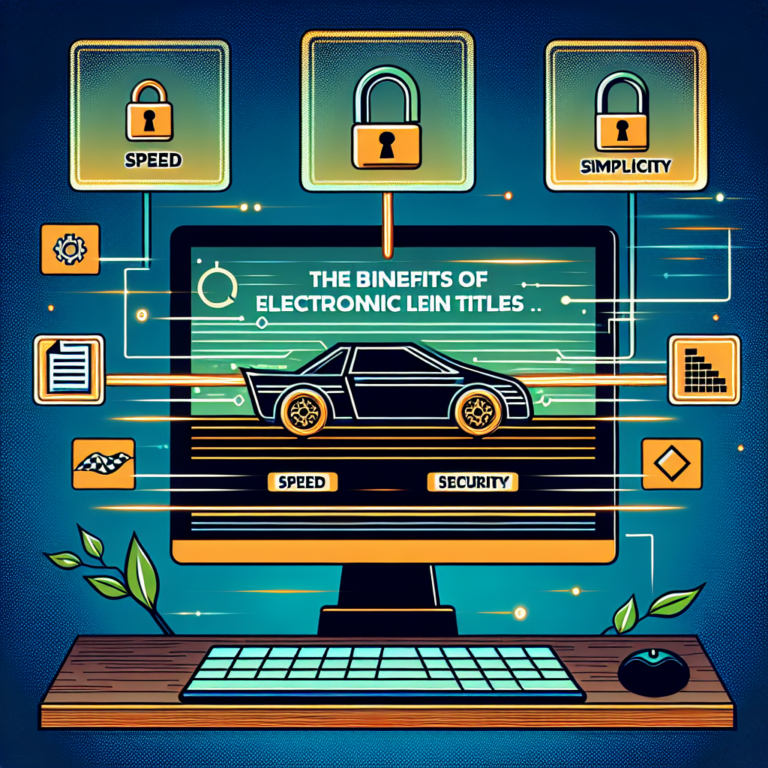In the ever-evolving landscape of digital technology, traditional processes are being transformed into streamlined, efficient systems that enhance the user experience. One such innovation is the Electronic Lien Title (ELT), a digital representation of a vehicle’s title that integrates lien information. As automotive financing continues to grow, lenders, dealerships, and consumers alike are turning towards ELTs to reap the benefits of speed, security, and simplicity.
Speed: Expediting Transactions
The automotive industry is no stranger to bureaucracy, with lengthy processes often causing delays in transactions. Traditional paper titles can take days—if not weeks—to be processed, especially when dealing with lienholders and title transfers.
ELTs combat these issues by allowing real-time updates and transfers electronically. Lenders can quickly file and release liens, which significantly shortens the timeframe needed to complete transactions. For example, when a loan is paid off, an electronic title allows the lender to instantly release the lien to the borrower, facilitating faster vehicle ownership transfers. This efficiency is particularly beneficial in a fast-paced financing market where customers expect quick service.
Moreover, dealerships benefit from the speed of ELTs, as buyers can leave the lot with their vehicles without waiting for title transfers to be completed. This expedited process not only improves customer satisfaction but also enables dealerships to turn inventory more quickly.
Security: Protecting Information
One of the most significant advantages of ELTs is the enhanced security they provide. Traditional paper titles can easily be lost, stolen, or damaged, leading to potential issues in proving ownership or settling liens. With electronic titles, data is stored securely in digital databases, significantly reducing the risk of fraud or theft.
ELTs also provide immediate access to lien information, allowing lenders and consumers to verify ownership and outstanding debts efficiently. Digital records are often encrypted and backed up, ensuring data integrity and protecting sensitive information from unauthorized access. Additionally, because electronic titles are streamlined through the Department of Motor Vehicles (DMV) or equivalent state entities, they reduce the likelihood of human errors that can occur in manual record-keeping.
Simplicity: Streamlined Processes
Navigating the complexities of vehicle financing and ownership can be daunting. ELTs simplify these processes for all parties involved. For borrowers, the confusion of paperwork is minimized, allowing for a clearer understanding of their financial obligations. The electronic nature of titles means that borrowers can access their titles and lien information online, enhancing transparency and allowing for better management of personal assets.
For lenders and dealerships, the electronic system simplifies the process of tracking and managing liens. ELTs eliminate the need for extensive paper trails, making it easier to maintain accurate records. Compliance with state regulations regarding lien processing becomes more straightforward, reducing administrative burdens and freeing up valuable resources.
Conclusion
As the automotive industry continually adapts to technological advancements, the emergence of Electronic Lien Titles stands out as a critical innovation. With benefits such as speed, security, and simplicity, ELTs streamline a once cumbersome process, facilitating smoother transactions for lenders, dealers, and consumers alike.
As more states adopt ELT programs, it is evident that the future of vehicle ownership and financing is rooted in digital solutions, providing a more efficient and secure landscape for automotive transactions. For anyone involved in vehicle financing, embracing this technology heralds a new era of convenience and peace of mind.


